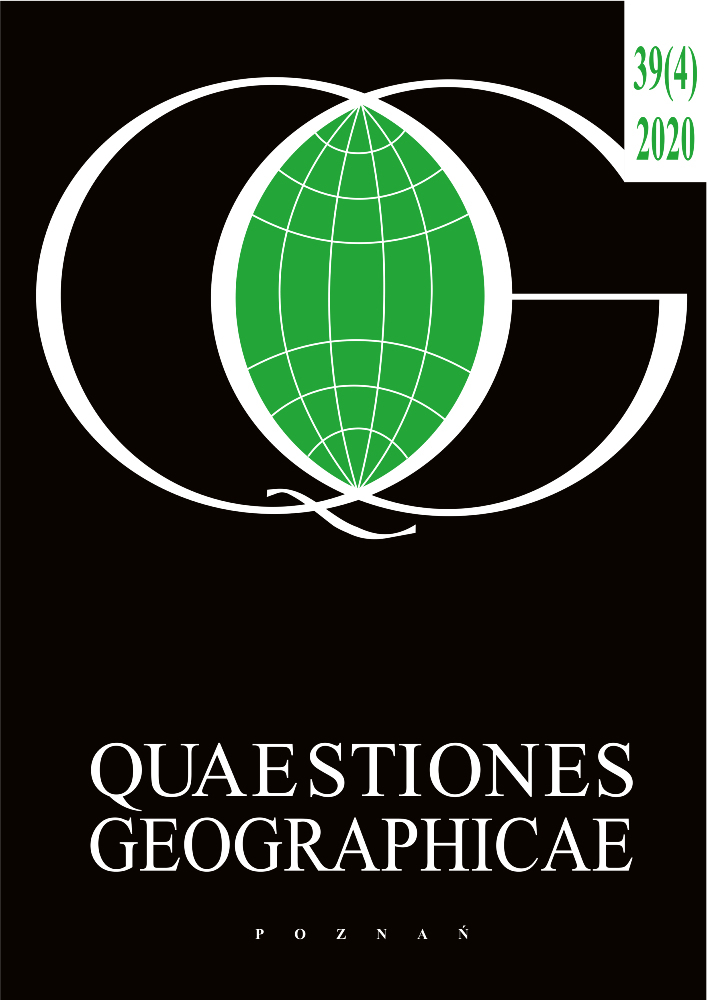Abstract
The article covers the geographical features of the organisation of medical tourism for a group of the world’s population suffering from a brain disease – dementia. The main attention is paid to the development of this type of tourism in Russia in comparison with some other countries. The question is raised about the involvement of these people in tourism activities, which could help to improve their health status and improve the living environment of societies. The main problems faced by tourists with the disease dementia are considered. The authors advocate that freedom of movement is the inalienable right of every person. Therefore, the creation of conditions for comfortable travel of people even with mental defects becomes a necessary measure to ensure the sustainable development of accessible tourism infrastructure. The recommendations are given, the implementation of which will allow organising an efficiently working tourist and recreational system that satisfies the needs of these peculiar recreational tourists, as well as the interests of all society representatives.
Funding
The study is financed by RFBR project № 19-05-00104 «Spatio-temporal features and regularities of medical tourism development at the global and regional levels of health system organization».
References
Chistobaev A.I., Semenova Z.A., 2011. World medical-geographical schools of thought: Leaders and achievements. Geography in School 4: 21–25.
Chistobaev A.I., Semenova Z.A., 2013. Evolution of scientific ideas of quality of life of the population. Terra Humana 3(28): 247–251.
Chistobaev A.I., Semenova Z.A., 2010. From Gippokrata to E.N. Pavlovskogo: Founders of medical geography. Geography in School 9: 37–41.
Chistobaev A.I., Semenova Z.A., 2011. The scientific disciplines interfaced to medical geography: Subordination and interaction. Geography in School 6: 14–20.
Chistobaev A.I., Semenova Z.A., 2018. Spatio-temporal dynamics of the global medical tourism. Journal of Environmental Management and Tourism 9(2): 267–275.
Damulin I.V., 2002. Bolezn’ Al’tsgeymera i sosudistaya dementsiya (Alzheimer’s disease and vascular dementia). Moscow: 86.
Health care in Russia (Zdravookhraneniye v Rossii), 2017. Rosstat (Federal State Statistic Service) Moscow: 170.
Kolanowski A., Fick D.M., Buettner L., 2009. Recreational activities to reduce behavioural symptoms in dementia. Geriatr Aging 12(1): 37–42.
Qaseem A., Snow V., Cross Jr. J.T., Forciea M.A., Hopkins Jr R., Shekelle P., Santaguida P., 2008. Current pharmacologic treatment of dementia: A clinical practice guideline from the American College of Physicians and the American Academy of Family Physicians. Annals of Internal Medicine 148: 370–378.
Qiu W.Q., Dean M., Liu T., George L., Gann M., Cohen J., Bruce M.L., 2010. Physical and mental health of homebound older adults: An overlooked population. Journal of the American Geriatrics Society 58: 2423–2428.
Sarkar C., Webster C., 2017. Urban environments and human health: Current trends and future directions. Current Opinion in Environmental Sustainability 25: 33–44.
Semenova Z.A., Chistobaev A.I., 2017. Meditsinskiy turizm – novaya otrasl’ ekonomiki.Gosudarstvo i biznes (Medical tourism is a new branch of economy. State and business). Modern problems of economics: Proceedings of the IX International Scientific and Practical Conference. SPb: 160–164.
Semenova Z.A., Chistobaev A.I., 2013. Impact of living conditions on population health. Geography in School 6: 33–38.
Semenova Z.A., Chistobaev A.I., 2015. Medical geography and population health: The evolution of knowledge. Monograph. Publishing house “Yevropeyskiy Dom”, St. Petersburg: 252.
World Alzheimer’s Report, 2015. The global impact of dementia: An analysis of prevalence, incidence, cost and trends. Alzheimer’s Disease International (ADI), London.
World Population Prospects, 2017. United Nations: Aging. Online: https://www.un.org/en/sections/issues-depth/ageing/index.html (accessed: 26 February 2019).
Zakharov V.V., Voznesenskaya T.G., 2013. Nervno-psikhicheskiye narusheniya. Diagnosticheskiye testy (Neuropsychiatric disorders: Diagnostic tests). MEDpress-inform, Moscow: 320.

